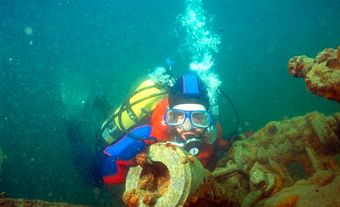The Dartmouth Lakes are 25 separate lakes located within the city of Dartmouth, NS, across the harbour from Halifax. Formed by Pleistocene glaciation about 15 000 years ago, they range in area from 1 to 140 ha. Long before the British settlement of Halifax in 1749, the principal lakes (Banook, Micmac and Charles) had been used for thousands of years by the seminomadic Mi'kmaq as part of a transprovince canoe route from Chebucto (Halifax) to Cobequid (head of the Bay of Fundy). The same 3 lakes formed a critical part of the ill-fated Shubenacadie Canal, constructed 1826-61 but abandoned 1870 because of railway competition. Sections of the canal and deteriorating locks remain today. The lakes have been a water supply since settlement. Before 1950 an ice-cutting industry flourished and icehouses were common along the shores.
The lakes have played an important recreational role for over a century. In the 19th century, residents from Halifax crossed the harbour by ferry to take part in skating, hockey, curling and iceboating. Dartmouth's Starr Manufacturing Co was world famous for its innovative metal skates. Around the turn of the century, canoeing and rowing became popular and regattas were started by newly formed boat clubs. Boat clubs are still active today, and Lake Banook is the site of many regional, national and international competitive paddling events. Swimming, waterskiing, cross-country skiing, fishing and sailing have also become popular activities in more recent years.
Despite extensive urbanization during the latter part of the 20th century, the Dartmouth Lakes are relatively clean, and pollution only occasionally interferes with recreational use. Recognizing the tremendous value of the lakes to all residents, lake protection has been given high priority, and is supported by a unique volunteer organization known as the Dartmouth Lakes Advisory Board.

 Share on Facebook
Share on Facebook Share on X
Share on X Share by Email
Share by Email Share on Google Classroom
Share on Google Classroom

